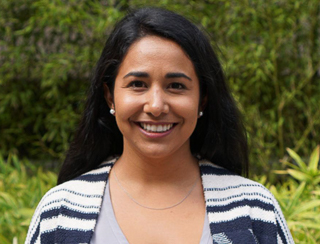Here you can:
Discover new
ways to
detect COVID-19.
Harness your passion for improving public health.
At DEOHS, you can:
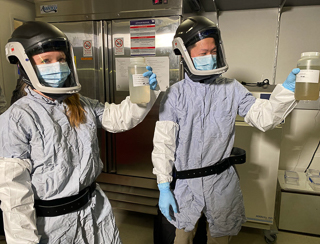
Investigate new methods for detecting COVID-19 to pinpoint disease outbreaks (the PhD dissertation of Sarah Philo, pictured above).
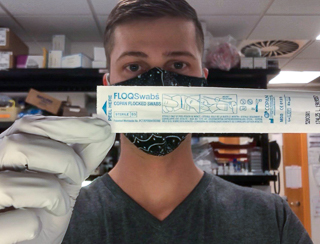
Test new, safer methods to diagnose tuberculosis and contribute to ending the global TB epidemic.
Why study Infectious Diseases?
Infectious disease scientists combine skills in clinical microbiology, immunology, parasitology and virology to study how diseases such as tuberculosis, diarrheal diseases, polio, COVID-19 and other communicable diseases develop and spread, how the environment influences their transmission and new solutions to prevent, detect and control disease transmission.
.
As a student in Infectious Diseases, you will:
- Choose to earn your MS, MS Applied or PhD degree.
- Take common core courses introducing foundational concepts and skills, including: risk assessment, management and communication; assessment and management of exposures to environmental hazards; core principles of toxicology; and how to use a One Health approach to address complex challenges.
- Learn how infectious microorganisms are transmitted to humans through air, food and water and how climate change is impacting that transmission, and gain skills in detecting and controlling microbial hazards.
- Complete a culminating experience (thesis, project or dissertation) showcasing your ability to integrate the skills you have learned to address an environmental or occupational health problem.
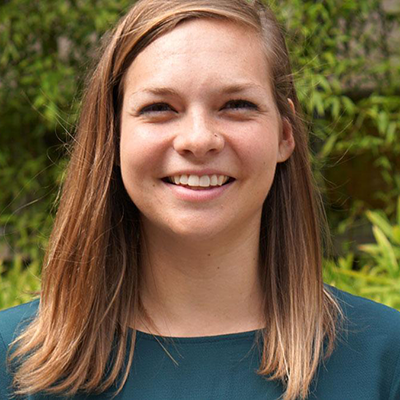
I chose this department because of the high caliber and range of research that the faculty is doing. Since coming to UW, I’ve gained extensive and valuable laboratory experience with different methods and microbes.
Allison Kline,
MS, Environmental Health
Read more
Infectious Diseases: Student research projects
Lauren Anne Frisbie
MPH | Environmental and Occupational Health (EOH)
2018 | Peter Rabinowitz
Our faculty and research
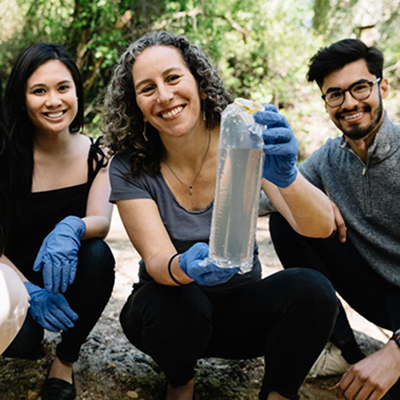
For students interested in interdisciplinary research and scholarship, you have to kind of carve your own way, taking things from a lot of different disciplines and fields.
Dr. Karen Levy,
DEOHS Professor
Read more
Research spotlight
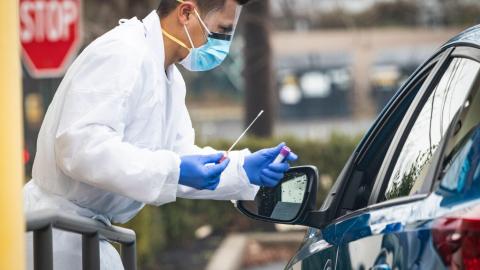
New study clears path for self-sampling for COVID-19
Patients can collect their own samples just as accurately as clinicians to protect health care workers and preserve PPE, according to new study from UW and UnitedHealth Group
LEARN MORE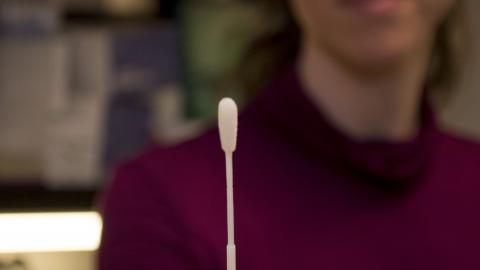
TB screening made easy
Oral swab testing for tuberculosis takes off with a $1.2 million grant to DEOHS researchers
LEARN MORE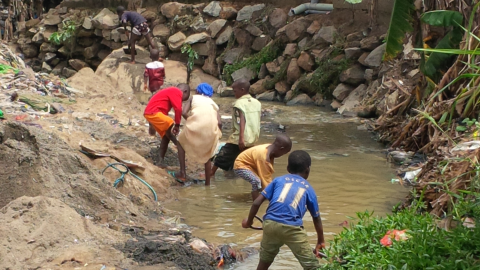
Catching waterborne disease before it spreads
DEOHS-designed bag filtration method tracks pathogens to prevent diseases like polio, and perhaps someday COVID-19
LEARN MOREOptional Elective Courses
Career pathways
Our Infectious Diseases graduates work in the public, private and nonprofit sectors and in academia at the local, national and international levels. Recent DEOHS graduates work as:
- An Epidemiologist with Washington State Department of Health.
- A Public Affairs Specialist at the US Environmental Protection Agency.
- An Environmental Health Associate at Ramboll Environ, a global consulting firm.
.png)
Alumni profile
It was a personal thing to me, to do something in my country and to do something useful.
Kholood Altassan,
Assistant Professor at King Saud University, Saudi Arabia
Read more
